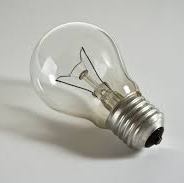The sun is powerful; in just one hour, the sun provides more energy to the earth than the energy produced by all nations in one year. With a rising need for energy sources that are both cost-effective and environment-friendly, harnessing the sun’s massive energy output is at the forefront of renewable energy. And, for energy pioneers in the Colorado Springs community, solar energy has an important place in increasing efficiency while reducing cost. Keep reading to learn more.
Local Solar Energy Gardens Ease Energy Loads
 |
| Solar panels at Venetucci Farm. |
When a region reaches its peak power demand, solar power helps by contributing power back to the grid for that specific area. To help ease power loads in densely-populated areas of Colorado Springs, Berwick Electric Co. (BEC) had the opportunity to partner with other contractors on local solar garden projects.
“We’ve (BEC) contributed to two solar garden projects, one at Venetucci Farm and the other located at Good Shepherd United Methodist Church,” BEC Project Manager James Rockhill said. “These solar gardens are self-power-generating systems that funnel energy back into the power grid to reduce the demand in those areas.”
Strategically set in rural areas outside of the city, each solar garden is comprised of solar panels made of photovoltaic cells. Each cell generates a certain amount of watts, and each panel is wired together into a series that harvests a specific amount of power. Next, an inverter collects the power and converts the direct current to usable, alternating current. The result is a reduction in consumer energy loads.
“Before implementing the solar gardens, we conducted a geographic survey to determine the best location,” James explained. “We worked with engineers to select locations near the power grid, where the cells receive sun exposure 90 percent of the time. The engineers were also an integral part of garden design process,” he added. “Each garden produces approximately 500 kilowatts.”
Solar Energy is Clean Energy
In addition to easing the load on heavily-burdened energy grids, solar power is also a clean, environmentally-kind energy source. “Solar energy systems help lower pollution. One major way they do this is by reducing the amount of coal consumption,” James said.
 |
| Solar panels at Good Shepherd United Methodist Church. |
According to Travis Hoium’s article for finance.com, one kilowatt of power generated from solar panels is so energy efficient that it prevents 150 pounds of coal from being mined, 300 pounds of carbon dioxide from being emitted, and 105 gallons of water from being consumed. If this is the benefit from just one kilowatt of solar-generated energy, imagine the cumulative impact on the environment with increased reliance on solar energy! And, we may continue to see solar power become a viable source of energy, as studies show that the cost to install a utility-scale solar system has dropped 45.8 percent since 2010.
Even though solar energy still has a long way to grow, more people are choosing to take advantage of its benefits. “In the last five years, we’ve seen an increase in the use of solar energy,” James explained. “In addition to the two solar gardens that BEC has helped create, the Air Force Academy also utilizes a solar garden. There are also a few businesses downtown that have solar panels on their rooftops.”
As we look for more efficient, cost-effective energy sources, solar power may emerge as a strong contender in the years to come. If you are interested in learning more about the benefits of solar energy, check out this article. What are your thoughts about using energy efficiently? We encourage you to share them in the comments box below.














